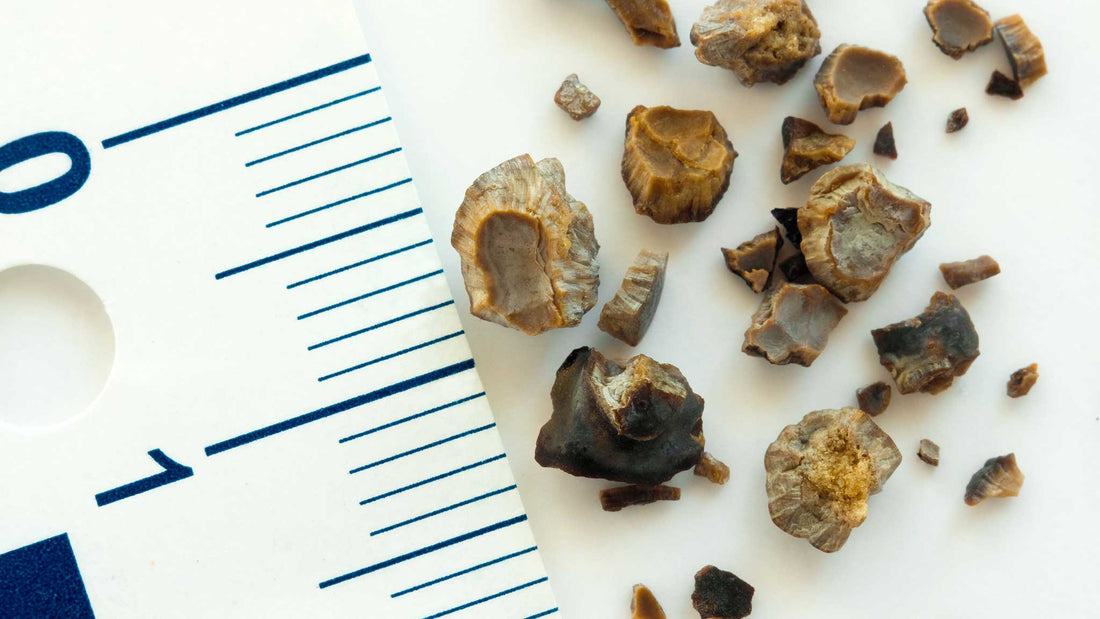
What Are Kidney Stones?
Kidney stones, a common concern in both dogs and cats, arise from the accumulation of minerals and proteins in their urine. These stones, varying in size, can cause discomfort and severe complications if left untreated. In this article, we delve into the causes, symptoms, treatment, and prevention of kidney stones in our beloved pets.
How Do Kidney Stones Develop in Dogs And Cats?
In both dogs and cats, kidney stones, particularly calcium oxalate stones, are a common concern. These stones develop primarily due to dietary factors and hydration levels. Calcium oxalate stones emerge when there's an imbalance in oxalate intake from the diet and inadequate water consumption, resulting in highly concentrated urine.
Oxalate, present in various foods, serves no specific function in animals. When there's an excess of oxalate in the body, the kidneys filter it alongside other impurities for expulsion through urination. However, insufficient hydration exacerbates this process, leading to the formation of calcium oxalate crystals - or kidney stones in dogs and cats.
Essentially, the oxalate ‘sticks’ to calcium in the kidney and begins to form crystals. If untreated, this process continues and the crystals can grow bigger over time to the point where they are too large to expel (thus the term stones) via the urinary tract and will need medical intervention. These kidney stones roll around inside the kidney and cause horrendous pain in your pet.
What Are The Symptoms Of Kidney Stones?
Symptoms of kidney stones in pets can include frequent or painful urination, an inability to urinate, vomiting or diarrhea, weight loss, and abdominal pain. Without treatment, kidney stones can cause urinary tract infections, blockages, and even kidney failure.
How To Treat Kidney Stones In Pets?
When addressing kidney stones in pets, the treatment plan is tailored to suit the specific type and size of the stones detected. Various methods are employed to effectively manage this condition and alleviate discomfort experienced by our furry companions.
In cases where kidney stones are identified early and are relatively small, dissolution may be achieved through targeted medications or strategic dietary adjustments. These interventions aim to modify the composition of urine, facilitating the breakdown and eventual elimination of the stones.
For larger or more persistent stones, surgical removal may be necessary to mitigate potential complications and restore urinary function. This procedure involves the precise extraction of stones from the urinary tract, allowing for immediate relief and preventing further discomfort.
Many vets will offer a specific kibble product to help slow the stone growth in your pet, but remember even the highest grade kibbles generally only contain 30% protein, next to no moisture, and can still be full of grains, wheat, and corn.
How To Prevent Kidney Stones
Ensuring your pet's well-being involves proactive measures to prevent the formation of kidney stones. By adopting the following preventive strategies, you can significantly reduce the risk of this painful condition and promote your pet's overall health:
1. Balanced Diet
Opt for a balanced diet that is low in calcium and phosphorus, as these minerals can contribute to the formation of kidney stones. Consult with your veterinarian to formulate a diet plan tailored to your pet's specific needs and susceptibility to kidney stones.
2. Specialised Diets and Supplements
If your pet is prone to developing kidney stones, your veterinarian may recommend specialised diets or supplements designed to mitigate the risk. These formulations are meticulously crafted to maintain urinary tract health and prevent the formation of stones. Raw beef and other meats along with bones (like brisket bones for dogs), offal, and some fruit and veg served fresh and raw is best. Even serving them cooled bone broth can be a good way to encourage them to drink more fluids. Ensure there are no preservatives, salts, sulphur dioxide or other chemicals that have been added to their food.
3. Adequate Hydration
Ensure your pet remains well-hydrated by providing access to fresh, clean water at all times. One of the best ways to avoid your pet having to endure painful kidney stones is to increase fluid consumption. You cannot make them drink more water, but you can give them a moisture-rich diet.
